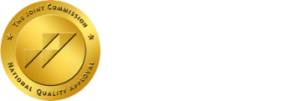Four Goals of a Crisis Intervention
Table of Contents
Have you or your loved one recently experienced a traumatic event or a critical incident? Even though this event may have passed, it will certainly cause lingering and strong emotional reactions. If you or your loved one is still suffering from aftershocks, that is very normal. These symptoms of traumatic stress may last weeks or even months.
Sometimes, the aftershock is so painful that you or your loved one may need crisis intervention by mental health professionals. Crisis intervention is needed when a particular experience or event was too overwhelming for an individual to manage by themself. It is important to know the overall goals of crisis intervention so that you can better collaborate with them.
Goal #1: Identify Signs and Symptoms of Aftershocks to a Crisis
Intense and painful reactions after a crisis may cause physical, cognitive, emotional, and mental disturbance in an individual. When mental health professionals begin an intervention, they always begin by identifying the signs of traumatic stress.
On a physical level, a person may feel unexplained fatigue, fainting, weakness, or even headaches. There can be elevated blood pressure and rapid heart rate. Accompanying these symptoms of physical discomfort can also be cognitive difficulties, such as poor concentration, memory loss, disorientation of time or place, heightened alertness, etc.
A person may also go through emotional and behavioral changes, including panic, agitation, depression, intense anger, social withdrawal, change in speech and communication patterns, and increased consumption of substances.
Goal #2: Conduct an Assessment of the Impact of the Crisis
Even though the above-mentioned symptoms may indicate traumatic stress after a crisis, mental health professionals still need to conduct a comprehensive assessment in order to match an individual with the appropriate level of care.
This assessment also allows health professionals to identify additional mental health conditions, including schizophrenia, bipolar disorder, personality disorders, panic disorders, and other mental health illnesses. For example, if a person displays suicidal thoughts, they may recommend the highest level of psychiatric care.
Goal #3: Launch a Trauma-informed Intervention
Some trauma-informed core guidelines for mental health crisis intervention include practicing consistent standards with recovery and reducing the likelihood of future occurrences of mental health crises. Since crises are intrinsically traumatic, interventions need to prioritize safety above all. The approach is strength-based in order to instill a sense of control and agency in the person who has experienced trauma.
At the core of crisis intervention are various therapies to support recovery. These include cognitive-behavioral therapy (CBT), dialectical behavior therapy (DBT), and acceptance and commitment therapy (ACT). Professionally trained therapists will take the entirety of a person’s experience and history into account when designing a treatment plan. They need to have a comprehensive understanding of the crisis and its impact while designing treatment.
Goal #4: Provide a Continuum of Care
Apart from providing a combination of therapies to address certain symptoms of mental health needs, a crisis intervention team also examines alternatives in order to construct a continuum of care for sustainable recovery. Recovery does not end on the last day of therapeutic treatment, so a long-term plan offering a continuum of care must be designed to support the individual.
After managing the impact of a crisis, health professionals may recommend either residential or outpatient care. The former helps stabilize progress and the latter provides ongoing support. A crisis intervention center always obtains commitment from the individual to ensure that there is an actionable continuum of care.
Goal #5: Ensure a Stabilization and Return to Normal
A criterion for stabilization is when a person regains a sense of control over his or her thoughts, emotions, and behaviors. Prior to the intervention, everything may have seemed to be spinning out of control. Once this sense of control is established, more personal and family responsibilities, such as parenting, can be re-introduced.
Health professionals will also watch for any signs of recurring crisis reactions after the treatment. Sometimes, people may need repeated admissions within relatively short periods. That can be due to the lack of stabilization. Recurrent crisis reactions may call for a careful re-assessment of intervention approaches. The goal is to reduce the future likelihood of crisis reactions and to build resilience in the person.
Practical Advice for Beginning Working With Professional Interventionists
Although there is a lot of flexibility around the approach of crisis intervention, when you feel overwhelmed by having to cope with the aftershocks of a crisis, you can be assured that this is the right pathway toward wellness. The more you or your loved one understands the general steps and cooperate with mental health professionals, the higher your chance of success will be.
Completing all these steps needs time, patience, and trust. You need to trust yourself and the health professionals who have been trained to help. Even with professional crisis intervention, you or your loved one still need a strong support network and resources to reinforce the change.
If you or your loved one feels overwhelmed by the aftershocks of a crisis, it is time to reach out for a professional intervention. Some people feel hesitant to reach out for help with mental health issues because they do not know what to expect. But delaying treatment can cause continued emotional pain and hurt people around you. Crisis intervention treatment is the best way forward. The structured care offered at Alter San Diego Crisis Intervention provides clients with a safe space to learn, grow, and heal. You can get relief from emotional distress and go on to thrive in your recovery. To learn more about the programs and services we have to offer, call us today at (866) 986-1481.









